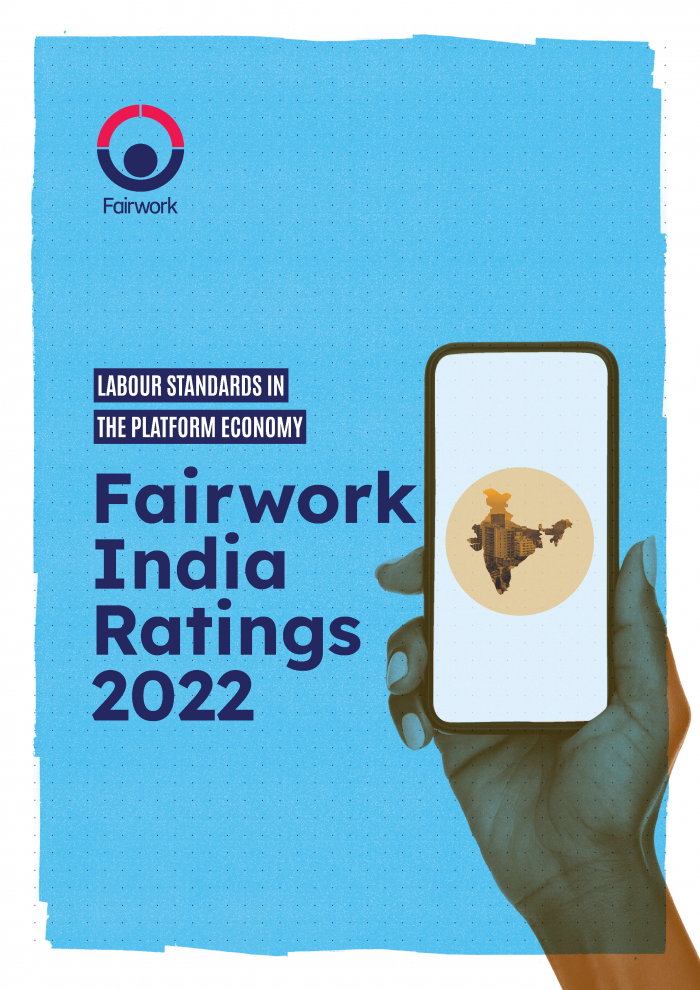Fairwork India Ratings 2022: Labour Standards in the Platform Economy


The Fairwork India team’s fourth report rating the working conditions of digital labour platforms in India takes flexibility as its focus.
The promise of flexibility of the digital platform economy raises as many questions about livelihoods as it offers opportunities. The Fairwork India report provides the basis for an interpretation of flexibility that allows for not merely the adaptability that platforms seek, but also the income and social security that workers lack.
Fairwork is an international action research project that evaluates working conditions in the platform economy in more than 30 countries. Digital labour platforms are scored against five principles of fair work: Fair Pay, Fair Conditions, Fair Contract, Fair Management and Fair Representation. For each principle, platforms can score up to two points, if there is sufficient evidence that platforms meet all the relevant thresholds.
Based at the Centre for IT and Public Policy (CITAPP), Interntional Institute of Information Technology Bangalore, the Fairwork India team investigate 12 digital labour platforms to evaluate their working conditions. The scores of the platforms assessed, Urban Company, bigbasket, Flipkart, Swiggy, Zomato, Zepto, Amazon Flex, Porter, Dunzo, Ola, PharmEasy, and Uber, range from zero to seven. Urban Company tops the ratings table with a score of seven; bigbasket is in at second with six; Flipkart and Swiggy both achieved five; Zomato four; Zepto two; Porter one; and the rest, Amazon Flex, Dunzo, Ola, PharmEasy, and Uber scored no points at all.